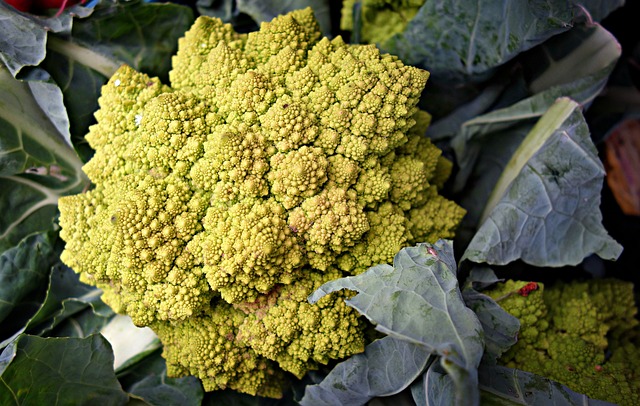Vitamin K is a vital nutrient often overlooked in comparison to other vitamins, but its role in the body should not be underestimated. In this article, we will explore the definition of vitamin K, its essential functions, the wide-ranging health benefits it offers, and the natural sources from which it can be obtained. Additionally, we will discuss important precautions to consider regarding vitamin K intake and potential interactions with medications.
Vitamin K is a fat-soluble vitamin that exists in two primary forms: vitamin K1 (phylloquinone) and vitamin K2 (menaquinones). While vitamin K1 is primarily derived from plant-based sources, such as leafy green vegetables, vitamin K2 is produced by certain bacteria in the gut and can also be obtained from animal-based and fermented foods.
Roles of Vitamin K in the Body
- Blood Clotting: One of the primary roles of vitamin K is its involvement in the coagulation process. It helps produce proteins necessary for proper blood clotting, preventing excessive bleeding and promoting wound healing.
- Bone Health: Vitamin K contributes to bone health by activating osteocalcin, a protein essential for calcium binding in bone tissue. Adequate vitamin K levels help maintain bone density and reduce the risk of fractures.
- Cardiovascular Health: Vitamin K has shown potential in promoting cardiovascular health by preventing calcium accumulation in the arteries, which may reduce the risk of arterial calcification and cardiovascular diseases.
- Cognitive Function: Emerging research suggests a potential link between vitamin K and cognitive function. Adequate vitamin K levels have been associated with better verbal episodic memory and executive function in older adults.
Health Benefits of Vitamin K
- Bone Health and Osteoporosis Prevention: Vitamin K, particularly vitamin K2, has been linked to a reduced risk of osteoporosis and fractures, making it beneficial for overall bone health.
- Cardiovascular Disease Prevention: Studies have indicated that vitamin K2 may help reduce the risk of cardiovascular diseases, including arterial calcification, arterial stiffness, and cardiovascular mortality.
- Blood Clotting Disorders: Vitamin K plays a crucial role in clotting factor production, making it essential for individuals with clotting disorders or those taking anticoagulant medications.
- Brain Health and Cognitive Function: Adequate vitamin K levels have been associated with improved cognitive function and a reduced risk of cognitive decline in older adults.
Natural Sources of Vitamin K
- Leafy Green Vegetables: Dark leafy greens, such as kale, spinach, broccoli, and Brussels sprouts, are excellent sources of vitamin K1.
- Cruciferous Vegetables: Vegetables like cauliflower and cabbage also provide a good amount of vitamin K1.
- Fermented Foods: Foods like natto (fermented soybeans), sauerkraut, and certain cheeses contain vitamin K2 produced by bacteria during fermentation.
- Animal-Based Sources: Animal products like eggs, meat, and dairy can be sources of vitamin K2, specifically the MK-4 form.
Precautions and Considerations
- Medication Interactions: Vitamin K supplements and high vitamin K intake can interfere with the effectiveness of certain medications, such as anticoagulants (blood thinners). If you are taking medication, consult your healthcare provider before significantly altering your vitamin K intake.
- Allergies or Sensitivities: Some individuals may be allergic or sensitive to vitamin K supplements. If you experience any adverse reactions, discontinue use and consult a healthcare professional.
- Pregnancy and Breastfeeding: Pregnant or breastfeeding women should consult their healthcare provider for guidance on vitamin K intake to ensure proper levels for themselves and their baby.
- Medical Conditions: Individuals with liver or gallbladder disorders, malabsorption issues, or specific medical conditions should consult a healthcare professional to determine their vitamin K needs.
Conclusion
Vitamin K plays an essential role in the body’s overall functioning, from blood clotting to bone health and beyond. By incorporating vitamin K-rich foods into your diet, such as leafy greens, cruciferous vegetables, fermented foods, and animal-based sources, you can naturally boost your vitamin K intake. However, it’s crucial to consider precautions, especially regarding medication interactions and individual health conditions. As with any nutritional considerations, consulting a healthcare professional is advised to determine the appropriate intake for your specific needs. Embrace the power of vitamin K to support your overall health and well-being.
Image by 👀 Mabel Amber, who will one day from Pixabay
Vitamins and Minerals
-

Vitamin E: An Essential Antioxidant for Health and Wellness
Vitamin E is a powerful antioxidant that plays a crucial role in maintaining good health and well-being. It is a fat-soluble vitamin that exists in various forms, with alpha-tocopherol being the most biologically active form in the human body. As an antioxidant, vitamin E helps protect cells from oxidative damage caused by free radicals, which…
-

Vitamin C Promotes Bone and Muscle Health and How To Get Enough in Your Diet
-

Vitamin B12 – Sources for Vegans and Vegetarians
-

The Benefits of CoQ10 (Coenzyme Q10) for Heart Health
-

Have You Heard of Niacin and Why You Need It
-

Do I need folic acid? I am not pregnant
-

Why Too Much Calcium is Not Good For You









Leave a Reply